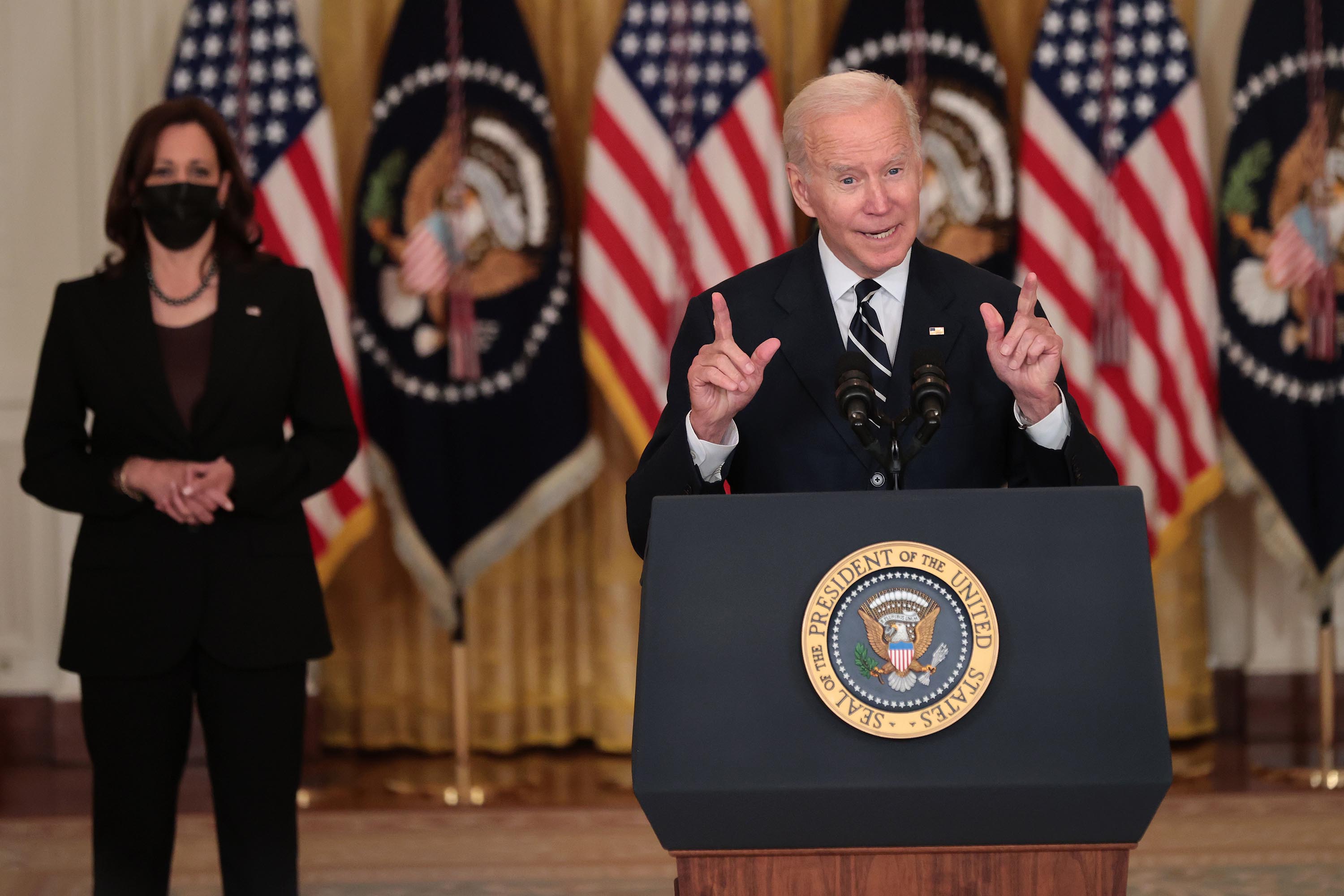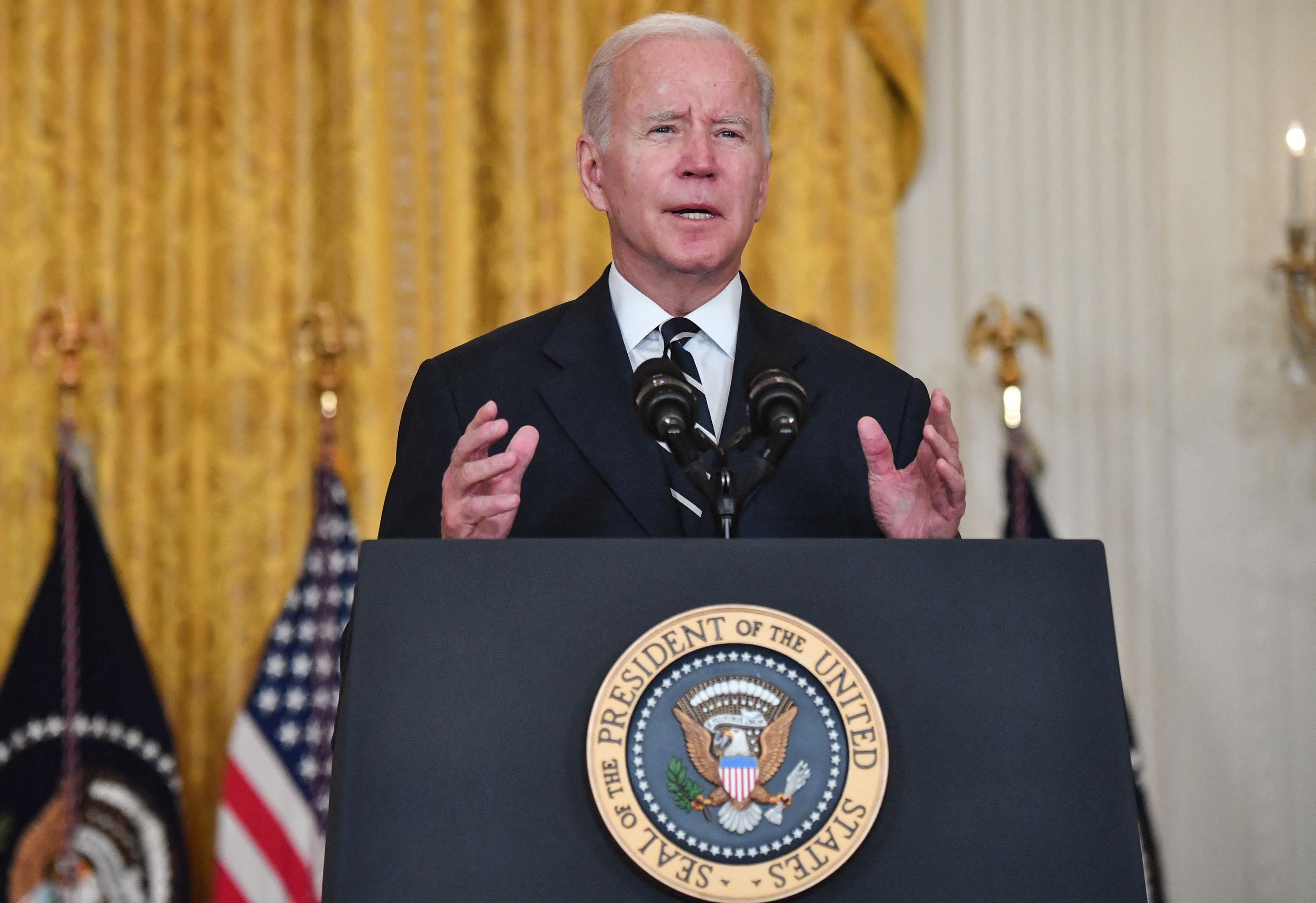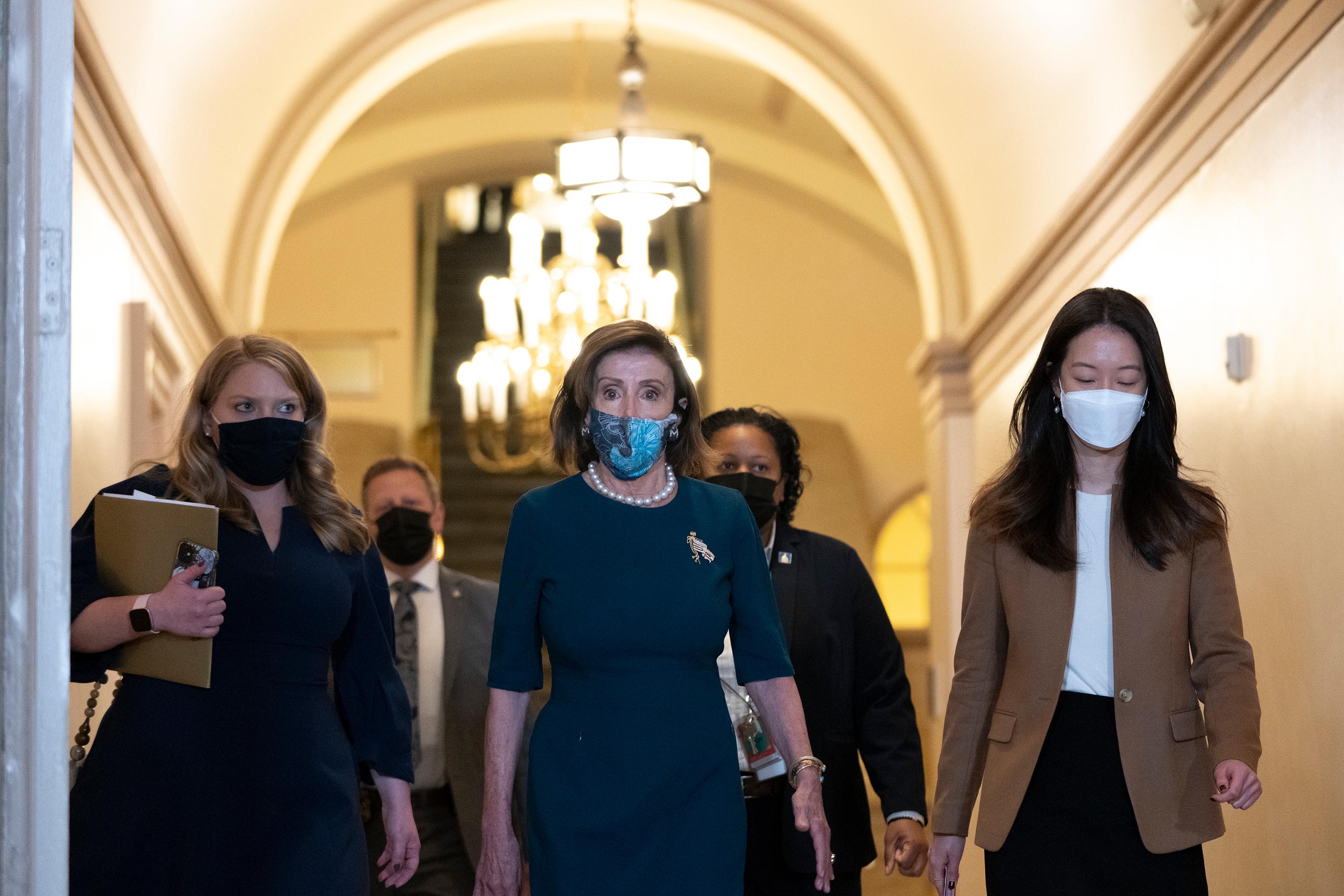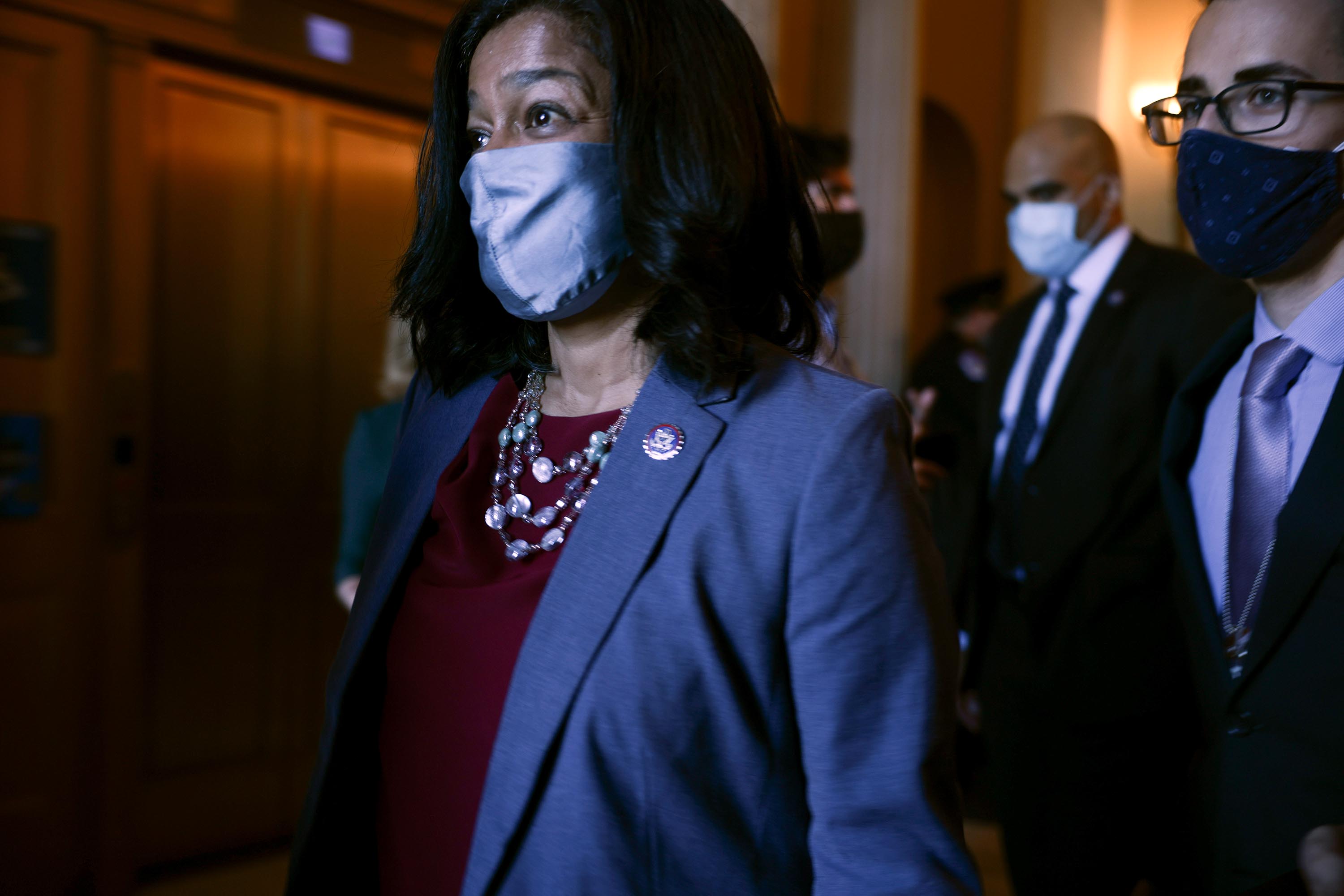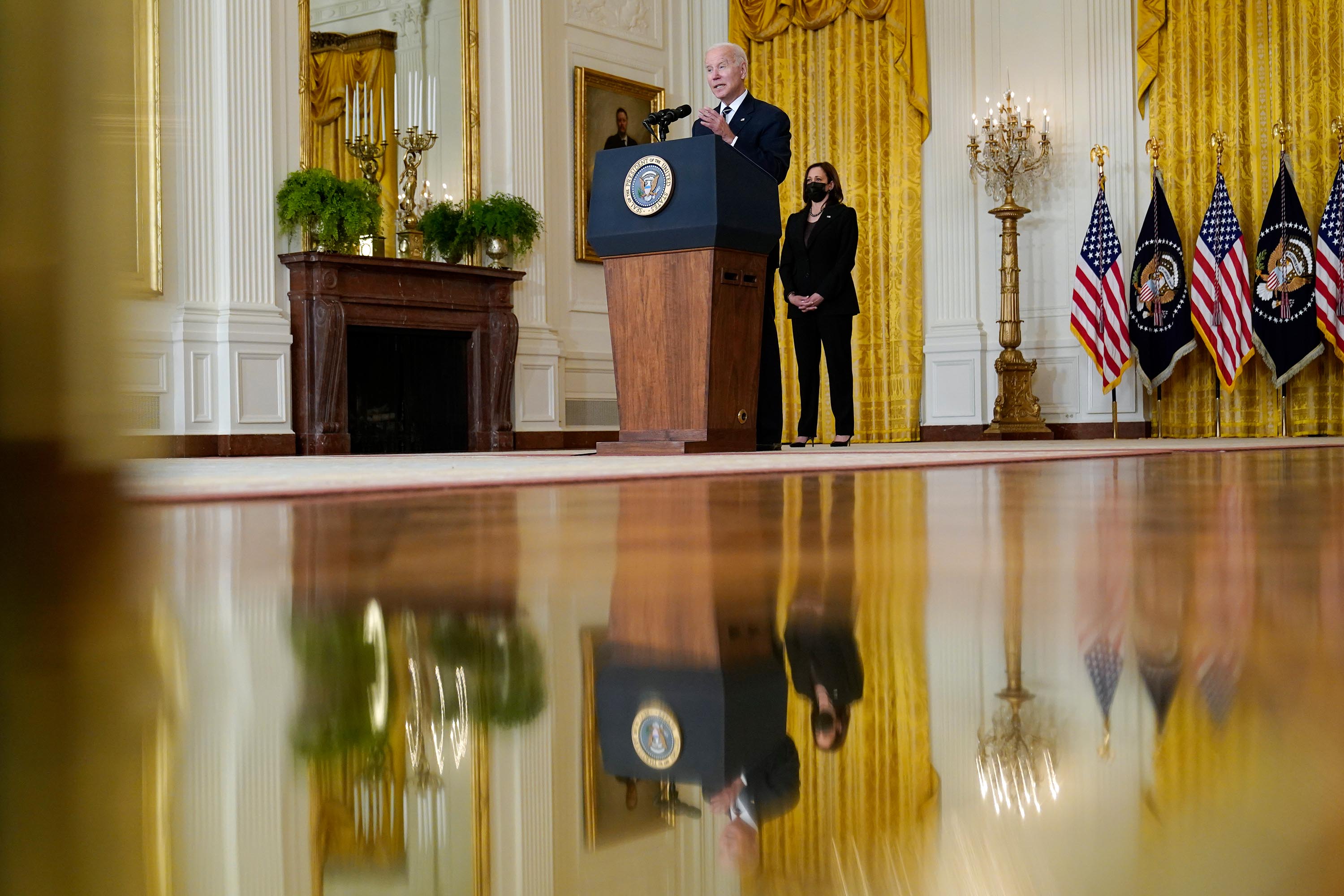
President Biden just wrapped White House remarks where he called for support for his newly released framework for a $1.75 trillion social spending plan, and it is significantly smaller than the Democrats’ initial sweeping proposal.
It would still be transformative, though it remains to be seen whether Democrats can agree to move it forward.
Here’s what’s in:
- Universal Pre-K: Provide free Pre-K for 3- and 4-year-olds. The plan would expand access to 6 million children a year.
- Child care: Limiting child care costs for families to no more than 7% of income for those earning up to 250% of state median income, expanding access to about 20 million children. Funding would last six years.
- Enhanced child tax credit: The beefed up credit — which provides $300 a month for each child under age 6 and $250 a month for each one ages 6 through 17 — would be extended through 2022 for more than 35 million families. Households earning up to $150,000 annually would qualify for the enhanced payments. The credit would be made permanently refundable so the lowest income families would continue to qualify. The enhancement, which was part of the $1.9 trillion coronavirus relief package Democrats enacted earlier this year, is currently only in place for this year.
- Earned income tax credit: The expanded earned income tax credit for 17 million low-wage childless workers would be extended through 2022. The boost, also part of the relief package, is only in place for this year. It nearly triples the maximum credit childless workers can receive, extends eligibility to more people, reduces the minimum age and eliminates the upper age limit.
- Home health care: The framework calls for permanently improving Medicaid coverage for home care services for seniors and people with disabilities, with the goal of reducing extensive waiting lists. It also aims to improve the quality of caregiving jobs.
The child and pre-school provisions would cost $400 billion, while the tax credits would total $200 billion. The home health care measures would cost $150 billion.
- Affordable Care Act subsidies: The enhanced federal premium subsidies would be extended through 2025. It would reduce the cost of coverage on the Obamacare exchanges, particularly for moderate-income and middle-class Americans. The boost, also part of the Democrats’ relief package, is set to expire after 2022.
- Medicaid expansion: The framework calls for providing Affordable Care Act premium subsidies for low-income Americans in the 12 states that have not expanded Medicaid, enabling them to buy Obamacare policies with no monthly premiums. It would not create a federal Medicaid expansion program.
- Medicare hearing benefits: Hearing services would be covered under Medicare.
The Affordable Care Act subsidies and Medicaid provisions would total $130 billion, while hearing benefits would cost $35 billion.
- Climate change: Biden’s framework would deliver $555 billion in tax credits and investments aimed at combatting climate change. It would offer tax credits to families that install solar rooftops or buy electric vehicles, for example. The investments are aimed at providing incentives to grow domestic supply chains in solar and wind industries. The package also calls for creating 300,000 jobs by establishing a Civilian Climate Corps that works to conserve public lands and bolster community resiliency.
Other provisions that would address housing, nutrition, higher education and equity, as well as other investments, would cost $280 billion.
Here's what’s out:
- Free community college: Biden initially called for making tuition free for two years at community colleges but it’s been dropped entirely from the package. It could still include an expansion of Pell grants for low-income students.
- Paid family and sick leave: Biden also wanted to create a federally-funded paid family and sick leave program for the millions of Americans who don’t already receive the benefit from their employer. He first called for 12 weeks of paid leave, which got reduced to 4 weeks during negotiations. But even the scaled back version was left out completely from the framework.
- Medicare dental and vision benefits: The proposal does not include expanding Medicare to include vision and dental coverage, both longtime goals of Vermont Sen. Bernie Sanders. Dental coverage, in particular, would have added several hundred billion dollars to the cost of the bill.
- Medicare drug negotiation: The President also dropped a controversial provision to allow Medicare to negotiate drug prices amid opposition from some Democrats. It would have offset $700 billion in spending.
- State and local tax deduction: It's critical to some Democrats that the package lifts or repeals the $10,000 cap on state and local tax deductions, known as SALT, that was put in place by the Republican-backed Tax Cuts and Jobs Act in 2017. But the framework makes no mention of it.
Read more about the framework here.



